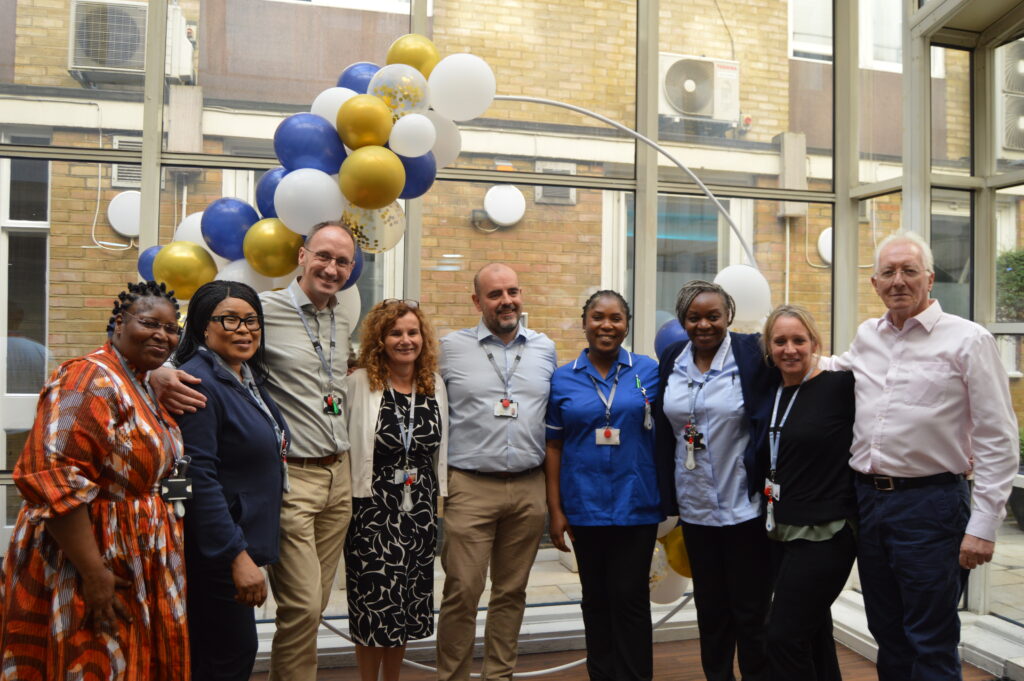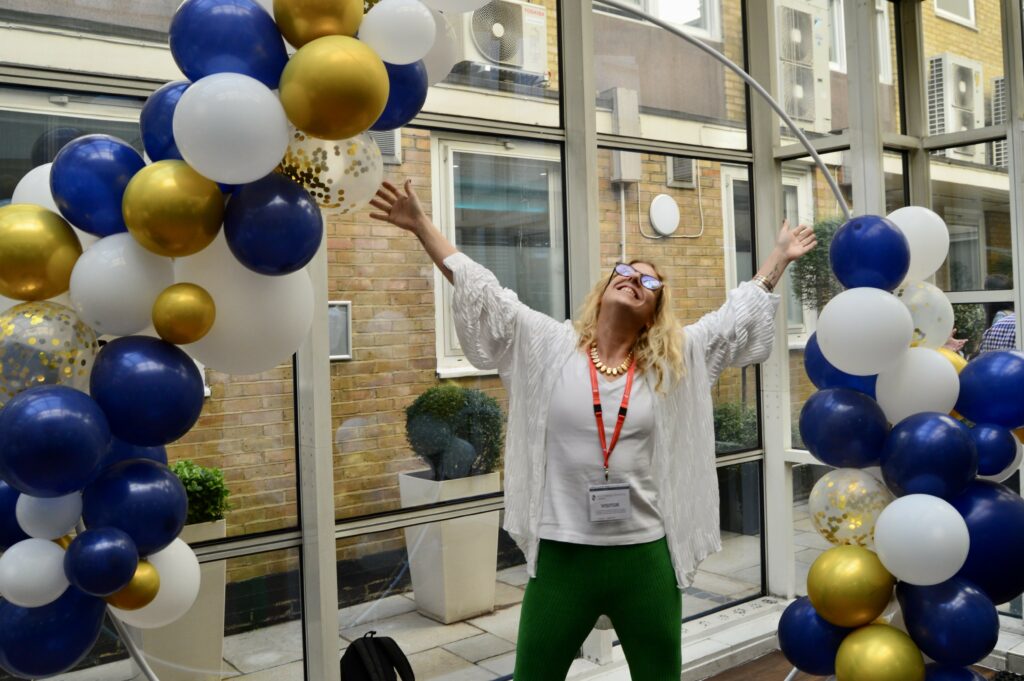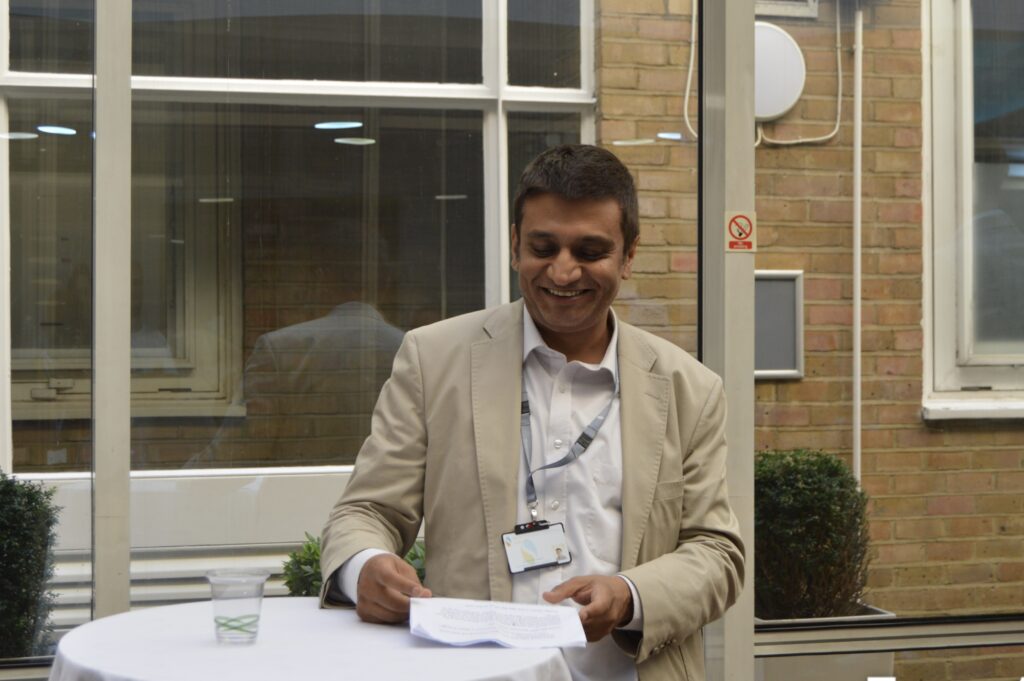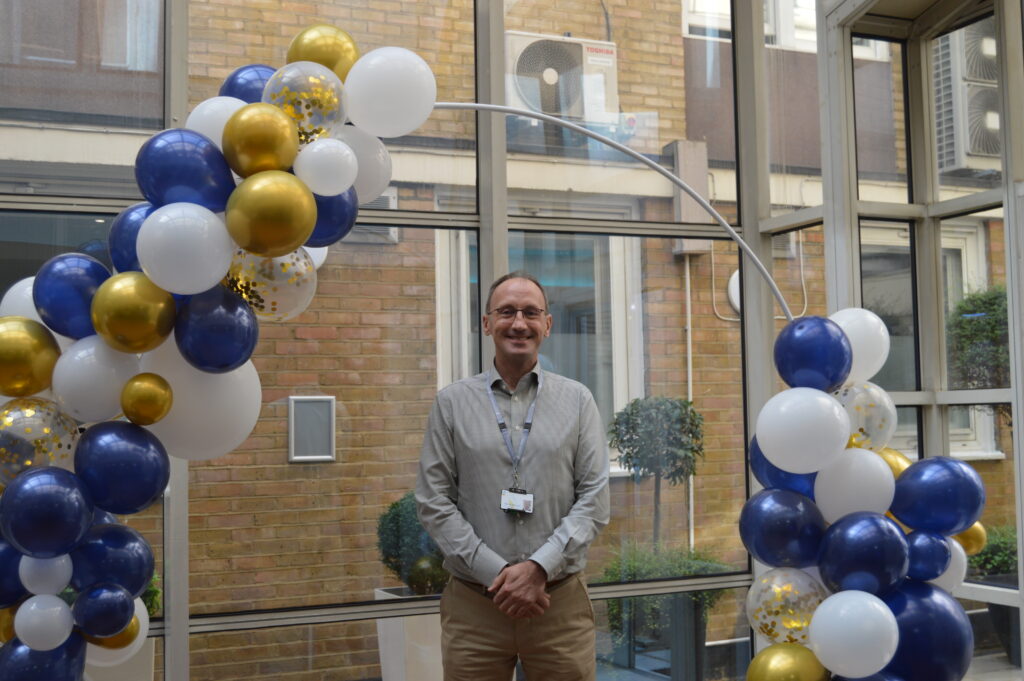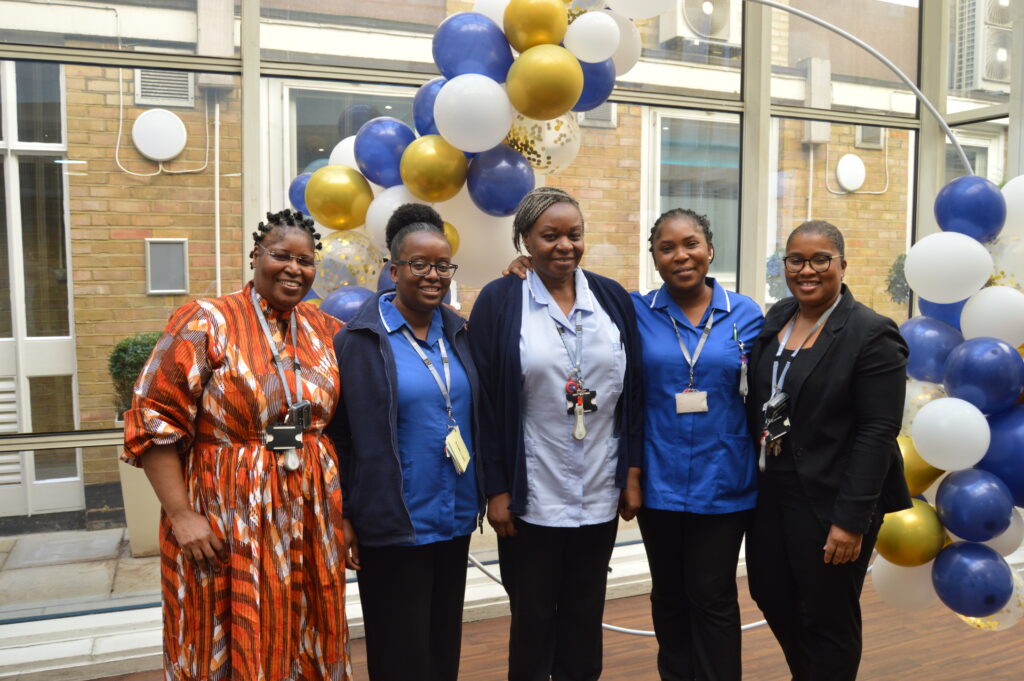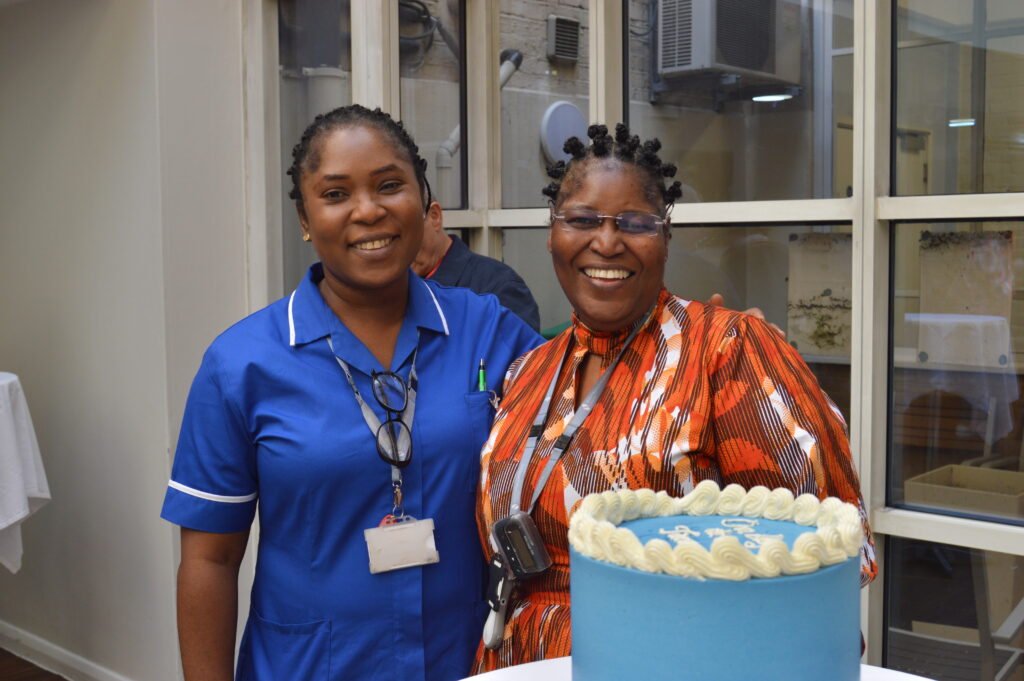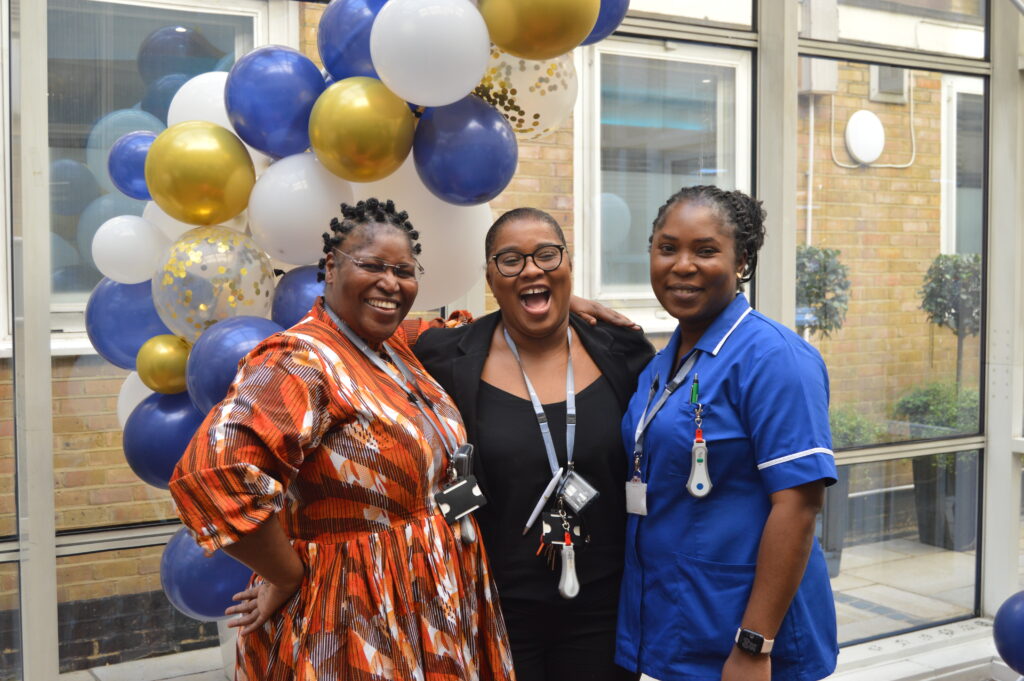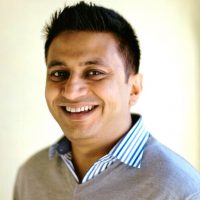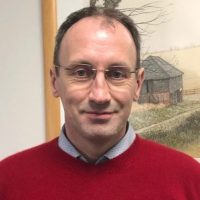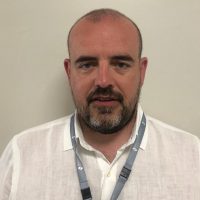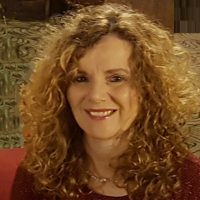On 26 September 2023, we celebrated our inaugural alumni event for the addictions unit.
This event was a chance for alumni to connect with each other and our team, to hear reflections from Dr Anshul Swami, Patrick Maxwell and two alumni, Paul and Anna, and to celebrate the progress of each and every person who attended.
Our patients
Two patient alumni, Paul and Anna, shared their stories of desperation, hope, recovery and gave encouragement to those who are also on the journey.
“You never have to use again, you never have to drink again, you never have to gamble again, you never have to take drugs again. But what you do need to learn to do is to be humble, reach out, connect, and just have honesty, open mindedness, and a willingness to do so. What I have is freedom from active addiction and I have a life beyond my wildest dreams, as they promised me. They promised me freedom from active addiction, and that’s what I have,” said Paul.
“I think that the most important thing about looking after yourself is staying connected. So, I can only implore everyone here, to remain in community regardless of whether we are patients, doctors, or nurses. We are all a community,” said Anna.
The addictions unit at Nightingale Hospital
As said by Patrick in his reflection, “Addiction is a devastating illness that thrives in despair, fear, and isolation. Here at the Nightingale addictions unit, we try to promote a space for people to heal, reflect and regain hope.” Dr Swami went on to say in his reflection that, “Recovery is not just about ‘doing’ therapy and assignments; at its best, it is about changing the way you think, feel, and behave.”
We believe that everyone has the potential to overcome their addiction and increase the quality of their life, irrespective of how long they have had their difficulties or what past treatment they have had. This alumni event was a testament to that.
For more information about the addictions unit, who the unit is suitable for and to learn about how you or someone you love can be referred, please visit our page here.
A full transcript of the reflections from Paul, Anna, Dr Anshul Swami, and Patrick Maxwell are below.
Paul, a past patient of the addictions unit
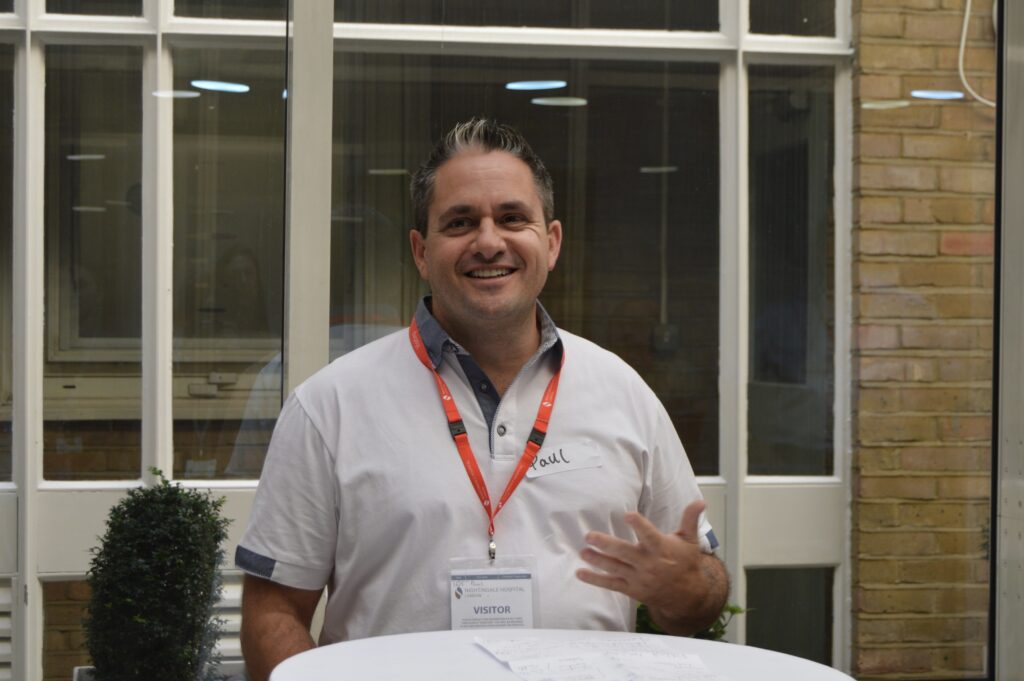
Hi everyone, my name is Paul and I’m a recovering addict. I’m so grateful to be asked to come and speak here. For me, the message that I want to speak about today is where I’ve come from, what I’ve done and some words to give to the people that are in the early stages of their recovery journey.
I can only talk about, as Dr Swami said, my experience. Hopefully, what you can see around here today, the people that have been to this hospital, that have done the treatment and have carried on with their lives, working a 12-step programme, whatever fellowship that may be, is that you are able to live a life free from active addiction.
On 8 October 2019, I crawled through the front doors here. It’s coming up four years now. There are people in this room that were here when I got here, there are people here who I’ve met when I’ve come back to give service, people that are currently in addiction and also here today, are people living a life free from active addiction. It’s so wonderful to see this, because this does work.
My truth, my reality, is that it took a lot of hard work. This wasn’t easy. This isn’t easy. I’m not recovered. I am a recovering addict. I wake up every day and I have to treat my disease just like one would with anything else. There are things that I put into my daily life, my daily routine that had to change and that enables me to live a life today.
There’s a saying that I really like and it’s that, “The day you plant the seed is not the day you eat the fruit”. The seeds got planted years ago and you sit, and you watch them. I was the last person to really see that fruit, whereas there are people around me who have seen it.
I am indebted to Nightingale Hospital; it saved my life. It got me clean. It enabled me to come in and off the absolute mayhem of destruction that I was in and put me somewhere for five weeks to get me clean. But when I left Nightingale Hospital, I didn’t walk out the doors and say, “Let’s go back to life, life is ready for me”. That’s where my journey started. I chose the 12-step fellowship, personally, I use NA. NA keeps me clean, as long as I do what I have to do.
I’ve learned that recovery is a lifestyle, as was my addiction. My therapist here taught me that you only have to change one thing, and that is everything. I thought I couldn’t change anything, but eventually, you do. I learned to forgive myself. I learned to put boundaries in place. I learned to have acceptance. I learned to grieve the loss of the drug of my choice. It was the longest relationship I had ever had in my life, and I was no longer going to have that by my side. I learned to ask for help. I learned to accept the help I was given. That was probably harder than learning to ask for the help.
I needed to work on myself. I needed to find structure, routine, balance, and I needed to be of service. I remember when they came in from NA to do a meeting downstairs thinking, “I want to be that person”. But they told me I had to wait for a year after being clean. The day I celebrated one year being clean, I came in and did my service and it is the most rewarding thing I do. Whether it’s service at a meeting, helping a newcomer or even the 12-step programme.
What I can tell you about my life today is, I’ve been through it all. I’ve lost friends, family members and all sorts of hell breaks loose. That’s life on life’s terms. But if you can go to places and be honest with people and share, there will be people there who have been through what you’ve been through and got through it clean. They can help you and advise you. You just have to stay connected.
You never have to use again, you never have to drink again, you never have to gamble again, you never have to take drugs again. But what you do need to learn to do is to be humble, reach out, connect, and just have honesty, open mindedness, and a willingness to do so. I was too busy trying to learn what it all means. Really, all I needed to know was what I didn’t need to know, I just needed to do. It’s an action programme.
From my experience, what I see in the room is the people who don’t do the work, who don’t work on themselves, who don’t give back to others, who don’t do service, who stop going to meetings, something happens, and then they go back out. Then, it’s life or death.
For me, this is a fireplace. Recovery is a fireplace and you’ve got to keep that fire burning. You’ve got to be there constantly to keep working, to keep that glow going to stay where you are. I could talk for days and days about recovery and that’s the truth. What I have is freedom from active addiction and I have a life beyond my wildest dreams, as they promised me. They promised me freedom from active addiction, and that’s what I have.
My experience may be different to other people. You have life on life’s terms. It’s not always a good day. There are bad days. On those bad days, you don’t need to use. When my mum died, I could cry, I could write, pick up the phone, I could go to a meeting where I could sit in front of thirty strangers and cry. Someone came up to me at that meeting and told me when they lost their mom and how they got over it. The pain didn’t go away that day and it lasted months on end, but I didn’t use. My mum, she used to tell me, “You didn’t come this far just to come this far”, and I liked that. She told me that when I walked out of treatment, when I got to six months, when I got to a year. The truth is it’s one day at a time. There is no miracle cure.
It involves my personal experience, it involves hard work and doing the work. The 12-steps for me, were the key to freedom. And really, you can enjoy life without alcohol, without drugs. I don’t know how to explain this so quickly in five minutes to people who are in here, but I promise you, if you come and talk to every one of us with a name tag on, you will hear that life is possible. You can have a life beyond your wildest dreams. It may involve cutting out people from your life, and doing other things when all you know is that. But there is change and it’s fearful, but it is possible.
There’s always a meeting. There’s always a meeting. Doesn’t matter where you are in the world. If you ever need a meeting place, there’s always a place to go or there’s helplines. Or just ask people for their number. Put numbers in your phone. You never know when you’re going to need that number. And if you pick up the phone and you’ve only got five or ten numbers in your phone, and you can’t get hold of anyone, the next number might just save your life. So, what’s the difference? Put a hundred numbers in your phone. Doesn’t matter if you never use them, but you may just need them one day. And this stuff will save your life.
I’m grateful for being here today and I’m here if anyone would like to talk. Thank you.
Anna, a past patient of the addictions unit
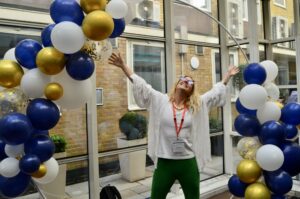
Hi everyone, my name is Anna.
The team, the nurses, the doctors, the people, everyone at the Nightingale; you all saved my life. Coming back here today is an honour and I would come here every day if I could. The gratitude I have for every single person here will never go away.
I’m 451 days clean and sober. I was at the Nightingale just over a year ago, where I did a 28-day addiction programme. Today I want to speak a little bit about my background, but I want to spend most of the time saying how my life has changed since and what I can do on a daily basis, when I’m not around these amazing people who will always look after me, and I have to look after myself.
I think that the most important thing about looking after yourself is staying connected. So, I can only implore everyone here, to remain in community regardless of whether we are patients, doctors, or nurses. We are all a community.
I had a lot of troubles when I was younger, I had a difficult childhood. My mother was an addict and so I grew up with addiction. I didn’t realise that for me, addiction was normality. It was in my childhood. As I was growing up, my siblings also came to this hospital, and this hospital saved their lives as well. This hospital has saved three members of my family. But growing up for me, it was a very difficult childhood and teenage years. My 20s was when everything felt alright, when I was able to party. But then things happened in my life which encouraged my addiction and all of a sudden, it happened very quickly, I came to rock bottom.
As Patrick was saying, for me, I realised that I was powerless over my addiction when I hit rock bottom. But it was only once I came here that I embraced that I was powerless over my addiction. Nightingale helped me with that so much. The group therapy, the individual therapy, the integration of having AA meetings come in and some wonderful external speakers coming in to speak with us here. You know, part of the programme at the Nightingale is about aftercare; and I’ve been looked after so well, by Sue, by Patrick, by all the nurses and by my fellow AA friends.
I want you, I want everyone to know that the important thing about my life now, is that I live a happy, healthy, and honest life. That’s something that I don’t think I would have been able to do before. Part of that has to do with what I did for myself. I wake up every day, one day at a time, and I’m so grateful for everything. For getting over my addictions and my gratitude can only go through to everybody here. So, thank you very much.
Dr Anshul Swami, Lead consultant for the addictions unit
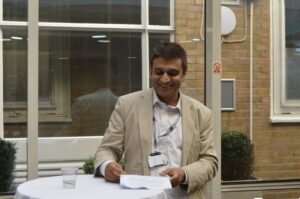
It’s lovely to see so many familiar faces today. Thank you so much for coming.
From the outside, an addiction seems a rather bizarre and exotic entity – perhaps like a black hole in deep space where everything you see and do is not quite what it seems. We seem to do the opposite of what our mental health colleagues do. We place profound emphasis on personal responsibility, using the word ‘I’. We try to smash denial where the opening line, “I have a habitual problem but I’m functional,” rings alarm bells. We ask loved ones to write courageous but compassionate letters to their loved ones in ‘addict mode’, we enforce boundaries as a cornerstone of recovery and maturation, we challenge each other robustly in groups, we de-prescribe by taking away the crutch of sedating chemicals whether they be illicit chemicals or prescribed chemicals and medication. We love it when our patients get angry, cry, soak themselves in tears, have panic attacks, speak of their cravings and desire to use, and speak with graphic honesty about their past destructive behaviours – this is when recovery starts. We can’t develop resilience and new ways of living if we aren’t allowed to feel, think, and work through what life throws at us – we want our patients to surf these experiences and use them to their advantage, like a good surfer off Maui.
We have a wonderful team as well as a strong and ever-increasing cohort of recovered patients who’ve gone on to flourish in their personal lives. At Nightingale, we are making changes to our programme to incorporate behavioural addictions, adding further components of the 12-step programme as well as binding our programmes to secondary treatment. There is a greater focus on co-dependency developmental work in the here and now – providing a space to mature into constructive relationships with ourselves and those in the orbit of our lives.
We take pride in getting family involved as quickly as possible. Often there is pain, anger, frustration, fear, and loss of trust. Addictions and the person in addiction are misunderstood. Our patients are bright, intelligent, and resourceful in other areas of their lives – if they could have stopped, they would have stopped. That they can’t stop, means that the problem is more powerful and overwhelming than you can imagine. Personal pride makes you think you’re a good swimmer but it’s not until you feel lonely, exhausted, and near to drowning that you realise the error of your ways. Over time, you come to understand that, ‘I am in the ocean of addiction’, that you can allow professional support and a much-needed power greater than yourself to come into your life.
Recovery is not just about ‘doing’ therapy and assignments; at its best, it is about changing the way you think, feel, and behave – it is about personal responsibility and betterment. It is not something we DO for our patients, it’s about what you start to DO for yourselves, with support. Recovery is about the little things, such as going to bed on time, eating and sleeping properly, listening to the little voice that wants help and asking for help. Then, it moves to the bigger things such as who will and won’t be in our lives, what to do with the day and how we will and won’t communicate to ourselves and others.
Addiction treatment has been referred to as ‘brainwashing’ but the reality is that I am in a biological, psychological, social, and spiritual malady, I need my brain to be washed and reset so I can start a new life.
I also believe we have some of the most impressive sayings such as…
- “If you like everyone in AA, you’re not going to enough meetings!”
- “You are not responsible for your disease, but you are responsible for your behaviour.”
- “Sponsoring yourself is like using unskilled labour.”
- “If you want what you’ve never had, you must do what you’ve never done.”
- “Insanity is not doing the same thing over and over again expecting different results; insanity is doing the same thing over and over again knowing full well what the results will be.”
- “One is Too Many, and a Thousand is Never Enough”
I will leave you with this quote from Debra Jay: “Recovery is not simple abstinence. It’s about healing the brain, remembering how to feel, learning how to make good decisions, becoming the kind of person who can engage in healthy relationships, cultivating the willingness to accept help from others, daring to be honest, and opening up to doing.”
Finally, never is one day the same as the next. I wish to remain humbled by my patients. Every week, I learn something new about myself and this field. Thank you.
Patrick Maxwell, Lead therapist for the addictions unit
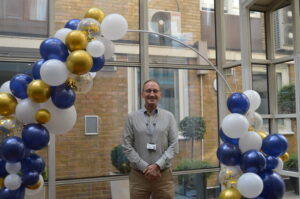
On behalf of the therapy team and myself, I would like to welcome you all to our first of many, ADU alumni events.
Delivering treatment is a team effort. From the catering and facilities team through to our medical, nursing and therapy staff; you all display dedication and understanding towards your work and for that, I’m eternally grateful. Addiction is a devastating illness that thrives in despair, fear, and isolation. Here at the Nightingale addictions unit, we try to promote a space for people to heal, reflect and regain hope.
Treatment can be a difficult process and we appreciate the trust and willingness everyone invests in their time with us. It is heartening to see people leave the hospital physically and mentally better, with a new outlook and the sense that their lives could be different. We are fortunate to witness improvements in people’s quality of life and a decrease in psychological distress over time and through the recovery journey, showing that people and their lives do become manageable. People take down the barriers of active addiction and start to rebuild their lives. Indeed, most people don’t just survive addiction as research suggests, they often thrive in long term recovery, reconnecting with themselves and their significant relationships. Recovery is a gift which you all deserve.
I just wanted to finish with a quote from a twelve-step fellowship called ‘Just for Today’. “Just for today, I’m afraid. Especially I will not be afraid to enjoy what is beautiful and to believe that as I give to the world, so the world will give to me.” Please can you join me in giving yourselves a big round of applause and we wish you well, one day at a time.
Addictions unit at Nightingale Hospital
The addictions unit at Nightingale Hospital is a 10-bedded inpatient and day-patient service, dedicated to treating patients with addiction disorders. The addictions unit combines the latest evidence-based practices from medicine and psychology with proven addiction treatment approaches of cognitive behavioural therapy (CBT), relapse prevention strategies, 12-step integration, motivational interviewing and addiction counselling, alongside a positive peer culture. The specialist multidisciplinary team is led by Dr Anshul Swami, Lead consultant and Patrick Maxwell, Lead therapist.
Our inpatient addiction treatment is provided via two separate modalities:
For more information about the addictions unit and to learn about how you or someone you love can be referred to the unit, please visit our page here.
Related Conditions
- Alcohol addiction
- Drug addiction
- Gambling addiction
- Behavioural addictions
- Technology addiction
- Sex and love addiction
Treatment approaches
Relevant specialists
People stories
-

Paul celebrates three years of sobriety
-
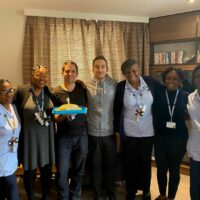
Ex-Nightingale Hospital patients celebrate 1 year of sobriety
-

To my darling cocaine...

